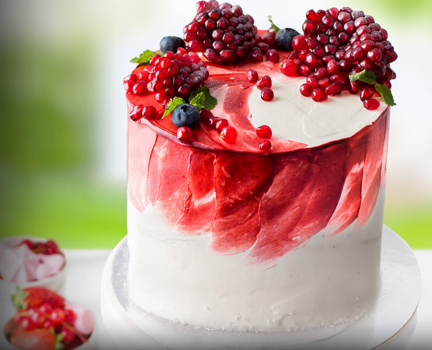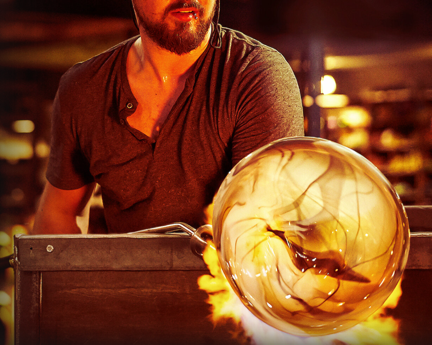I compare two contest style reality TV shows.
I don’t watch regular TV. I don’t have cable or satellite, although both are available where I live. Instead, I have a smart TV and subscribe to a handful of services: Netflix, Amazon Prime, and Disney Plus. (I also watch YouTube on my TV but I haven’t yet sprung for a subscription to get rid of the increasingly annoying ads. I don’t think YouTube should cost more than Netflix.) Because I absolutely abhor commercial breaks while watching TV, I pretty much ignore the extra channels my TV offers for “free.” (My time is worth more than what I’d spend watching those commercials.) I don’t channel surf; once I start a show, I’ll either watch it all the way through or turn off the TV and do something else.
What I watch is pretty much limited to what I find on the services I get. (This means that if you try to start a conversation with me about the latest hit on CBS, you will not succeed.) When I feel like watching TV and I don’t have something specific in mind, I’ll browse to find something new. I’m big on binge watching when I want entertainment, so that occasionally has me trying new multi-episode series to see what resonates with me enough to watch.
I should mention here that, as a rule, I don’t watch reality TV. My personal reality is entertaining enough for me — I don’t need to watch some onscreen reality, manipulated by directors and creative editing to add drama. I’ve never seen Survivor or The Great Race or The Bachelor. I don’t even know the names of other shows that countless Americans waste their time watching — probably because they have time to waste. I prefer spending my free time enhancing my own reality.

The promo photo on Netflix for the Great British Baking Show.
That said, I rather enjoy The Great British Baking Show, which I believe — and you can correct me if I’m wrong — falls into the reality TV genre. It’s kind of fun and very heartwarming (at times) to see the contestants help each other out. There’s very little (if any) friction between the folks vying for the prize of top chef. I watch people struggle (or not) to bake amazing things. They succeed (or fail miserably). The hosts provide just the right amount of comedy while the judges keep things grounded. Along the way, I learn a bit about baking techniques and how people’s backgrounds influence the kinds of foods they make. There’s no fake drama — at least none that I can see. I think that’s what explains why it’s such a hit with many of my friends, although we don’t usually gab about it the way other folks seem to gab about The Bachelor. (For Pete’s sake, even one of the late night TV guys — one of the Jimmys — includes a recap of each Bachelor episode in his monologue. Who cares?)

The promo shot for Blown Away on Netflix.
Recently, while looking for something new to watch, Netflix suggested Blown Away, a contest-style reality TV show featuring glass blowers. This seemed like a good fit for me. I love the look of blown glass and sort of expected the show to enlighten me about glass art techniques, much the way British Baking gives me insight into making custard or layering cakes. I figured I’d give season 1 a try and tuned in for a few episodes.
I was disappointed. Although the show offered many clips of what the glass artists were doing, there was very little in the way of educating viewers about it.
Well, that’s not exactly fair. I remember seeing some onscreen captioning that did explain certain terms and techniques briefly, but all of those seemed to disappear by the middle of the first season’s run of episodes. Other than that, the only time artists or judges explained what was going on was to enhance the drama. “That’s a very risky procedure so-and-so is attempting.” Or “If I don’t do this just right, the whole piece can shatter.” In most cases, these insights were actually the foreshadowing of breaking glass or ruined pieces.
I know that the place must have been full of cameras because of the amount of footage they edited in that set up rivalries between contestants. One contestant leaves the annealer door open too long; cut to another one yelling, “close the door!” Another contestant is yelling at her assistants; cut to the other contestants complaining about the yelling. And don’t even get me started on the way they edited in facial expressions from competitors that were obviously not responses to things that were said in the edited video. In the final episodes, half the scenes consist of one contestant comparing his/her work to the others and saying how much better (or worse) it was or declaring that he/she should win (or should get eliminated).
Four episodes from the end, I already knew who the final face-off would be between: a particularly outspoken and prima donna-ish woman who claimed to be making art that always seemed to be gender related and a no-nonsense man who definitely had superior skills but a similarly unattractive attitude. The editors had been developing the rivalry between them for nearly the entire run of episodes; how could they possibly eliminate either one? I got the feeling the outcome was established long before the show was edited and the scenes they included were edited in to support that outcome. The trouble for me was that I didn’t like either of those last two contestants. And when it came down to the final winner, I preferred the other one to win. (I actually wanted the guy eliminated just before the final round to win; he had the skill and the humility to take his art to the next level with the prize.)
When the series was over — I watched the 10 half-hour episodes over three nights — I was left feeling disappointed. I’d learned next to nothing and felt manipulated. I’d grown to hate the host of the show and the person who won. I felt too much pity for the contestants I thought should have stayed in the running but had obviously been eliminated because they were too much like British Baking contestants and not enough like other reality show contestants who would do anything to win.
I had just started watching the first episode of season 2 — perhaps thinking it would get better? — when I realized that this was probably like most reality competition shows. Fake. Contrived drama. Judging designed to maintain the rivalry between competitors. Little, if anything, to be learned. Why would I waste my time with more of this?
I turned it off.
I spent some time thinking about how this show stacked up against a reality competition that I actually liked: The Great British Baking Show. I wanted to understand why I liked one show and disliked the other. This blog post is the result of those thoughts.
What do you think? Have you seen either show? Can you recommend something you think I might like?
